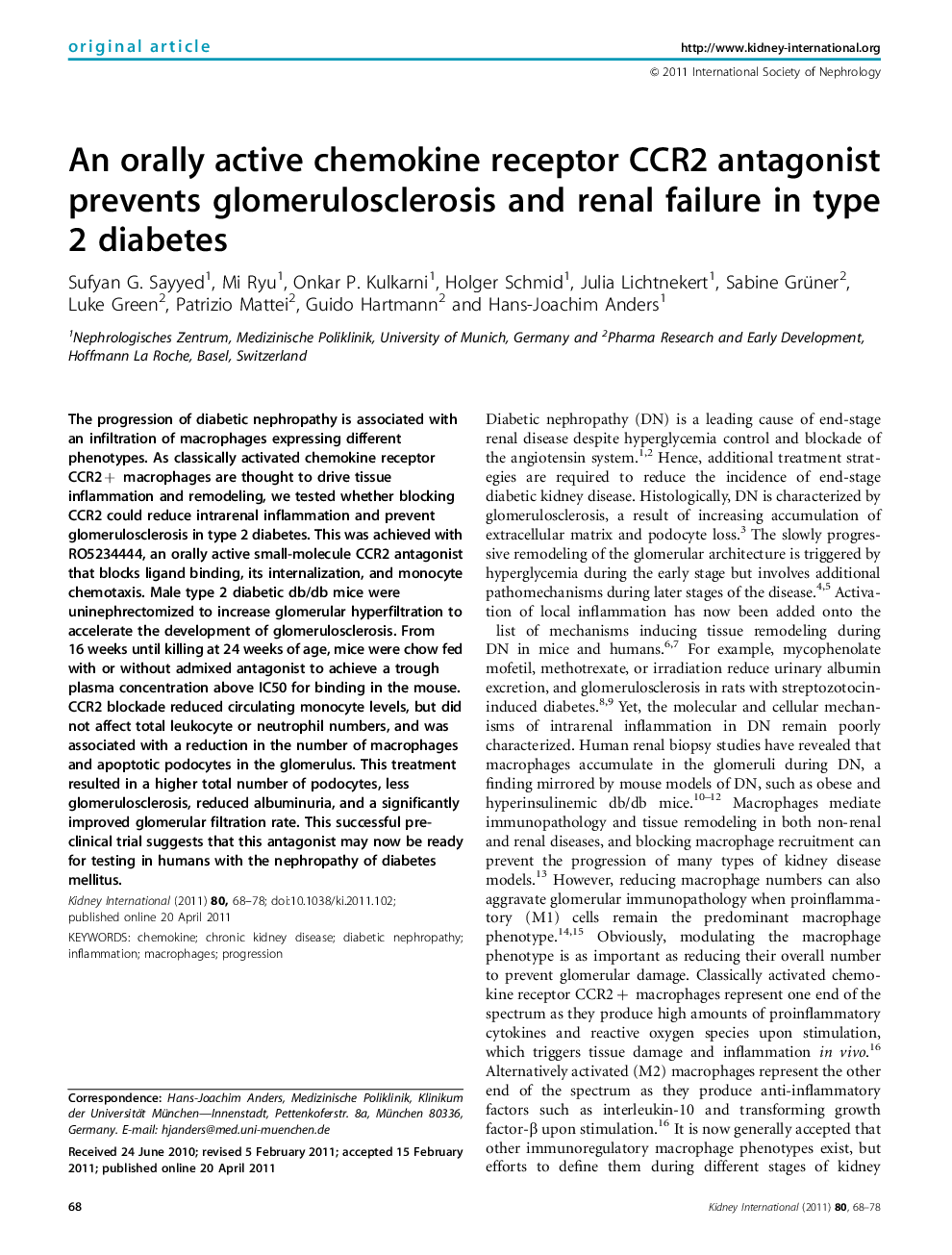| Article ID | Journal | Published Year | Pages | File Type |
|---|---|---|---|---|
| 6164171 | Kidney International | 2011 | 11 Pages |
Abstract
The progression of diabetic nephropathy is associated with an infiltration of macrophages expressing different phenotypes. As classically activated chemokine receptor CCR2+ macrophages are thought to drive tissue inflammation and remodeling, we tested whether blocking CCR2 could reduce intrarenal inflammation and prevent glomerulosclerosis in type 2 diabetes. This was achieved with RO5234444, an orally active small-molecule CCR2 antagonist that blocks ligand binding, its internalization, and monocyte chemotaxis. Male type 2 diabetic db/db mice were uninephrectomized to increase glomerular hyperfiltration to accelerate the development of glomerulosclerosis. From 16 weeks until killing at 24 weeks of age, mice were chow fed with or without admixed antagonist to achieve a trough plasma concentration above IC50 for binding in the mouse. CCR2 blockade reduced circulating monocyte levels, but did not affect total leukocyte or neutrophil numbers, and was associated with a reduction in the number of macrophages and apoptotic podocytes in the glomerulus. This treatment resulted in a higher total number of podocytes, less glomerulosclerosis, reduced albuminuria, and a significantly improved glomerular filtration rate. This successful pre-clinical trial suggests that this antagonist may now be ready for testing in humans with the nephropathy of diabetes mellitus.
Related Topics
Health Sciences
Medicine and Dentistry
Nephrology
Authors
Sufyan G. Sayyed, Mi Ryu, Onkar P. Kulkarni, Holger Schmid, Julia Lichtnekert, Sabine Grüner, Luke Green, Patrizio Mattei, Guido Hartmann, Hans-Joachim Anders,
